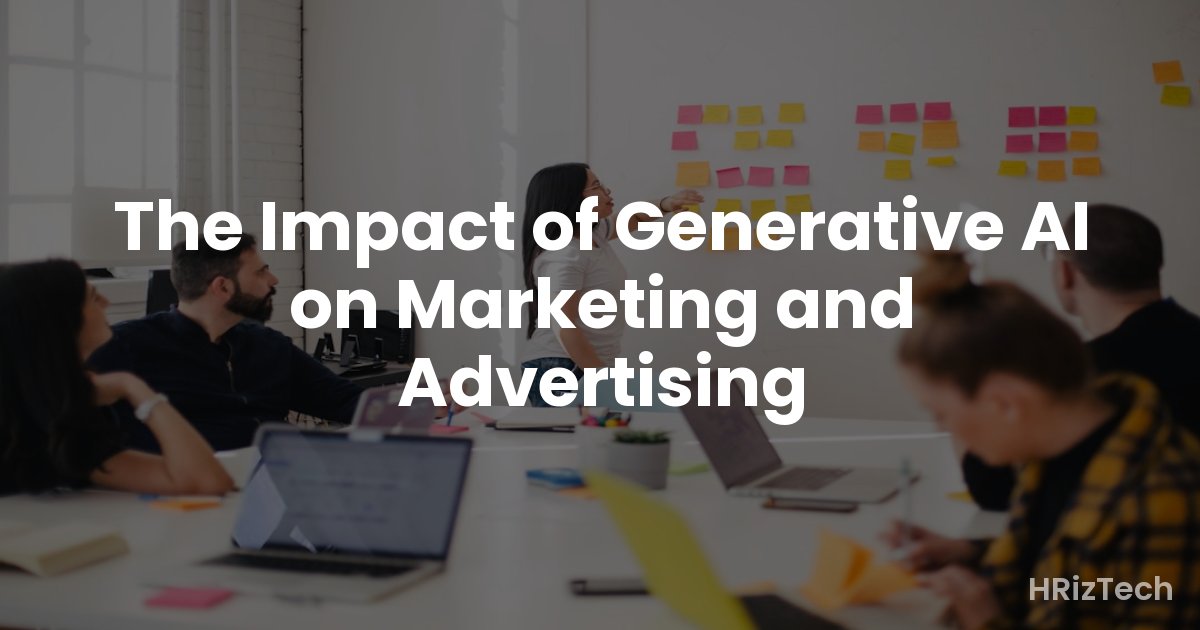The Impact of Generative AI on Marketing and Advertising

The Impact of Generative AI on Marketing and Advertising
- Generative AI is rapidly changing how marketing and advertising campaigns are created and executed.
- AI tools can automate tasks, personalize experiences, and generate creative content, leading to increased efficiency and effectiveness.
- Ethical considerations and potential job displacement are important aspects to consider.
- Successful adoption requires a strategic approach and understanding of the technology's capabilities and limitations.
A New Era of Creativity and Automation
The marketing and advertising landscape is undergoing a seismic shift, fueled by the rapid advancements in generative artificial intelligence (AI). No longer a futuristic fantasy, generative AI is here, and it's transforming how businesses create, deploy, and measure their campaigns. From crafting compelling ad copy to generating stunning visuals, AI is proving to be a game-changer, offering both unprecedented opportunities and significant challenges.
Automating Repetitive Tasks
One of the most immediate impacts of generative AI is the automation of repetitive tasks. Imagine the time previously spent on writing hundreds of product descriptions or social media posts. Now, AI tools can handle these tasks with speed and efficiency, freeing up marketers to focus on higher-level strategic initiatives. This automation isn't just about speed; it also contributes to consistency in brand messaging across various platforms.
Personalization at Scale
Personalization is no longer a luxury; it's a necessity in today's competitive market. Generative AI allows for hyper-personalization at scale, tailoring marketing messages to individual customer preferences and behaviors. AI algorithms can analyze vast amounts of data to identify patterns and create customized experiences, leading to higher engagement rates and conversion rates.
Unleashing Creative Potential
Contrary to some fears, generative AI is not replacing human creativity; it's augmenting it. AI tools can assist in generating creative concepts, brainstorming ideas, and even producing initial drafts of marketing materials. This allows marketers to explore a wider range of creative possibilities and overcome creative blocks. Think of AI as a powerful collaborator, not a replacement.
Beyond Text and Images: The Expanding Capabilities
The applications of generative AI extend far beyond text and image generation. AI is being used to create personalized video ads, develop interactive experiences, and even compose original music for marketing campaigns. The possibilities are truly limitless, and we're only beginning to scratch the surface of its potential.
AI-Powered Content Optimization
Generative AI can analyze existing marketing materials and suggest improvements to optimize their performance. This includes identifying areas for improvement in terms of readability, SEO, and overall impact. AI can help marketers refine their messaging and ensure it resonates with their target audience.
Predictive Analytics and Campaign Optimization
By analyzing historical data and market trends, generative AI can predict the success of different marketing campaigns. This allows marketers to make data-driven decisions, allocate resources more effectively, and optimize their campaigns for maximum impact. This predictive capability reduces risk and maximizes ROI.
Navigating the Ethical Landscape
While the benefits of generative AI are undeniable, it's crucial to address the ethical considerations. Concerns about potential job displacement, the spread of misinformation, and the biases embedded in AI algorithms must be carefully considered. Responsible development and deployment of AI are paramount to ensure its positive impact on society.
Addressing Bias and Ensuring Fairness
AI algorithms are trained on data, and if that data reflects existing societal biases, the AI will perpetuate those biases. It's crucial to ensure that the data used to train generative AI models is diverse and representative, to mitigate the risk of creating discriminatory or unfair marketing campaigns.
Transparency and Accountability
Transparency is key in the age of AI. Marketers should be clear about when AI is being used in their campaigns and how it's being used. Accountability for the output of AI tools is also crucial, ensuring that any issues or inaccuracies can be addressed promptly.
The Future of Marketing with Generative AI
The integration of generative AI into marketing and advertising is still in its early stages, but its impact is already profound. As the technology continues to evolve, we can expect even more sophisticated and powerful AI tools to emerge. This will lead to further automation, greater personalization, and even more creative possibilities. The key for businesses is to embrace this technology strategically, understanding both its potential and its limitations.
Strategic Adoption and Skill Development
Successful integration of generative AI requires a strategic approach. Businesses need to identify specific areas where AI can add value, select appropriate tools, and develop the necessary skills within their teams. This includes training employees on how to effectively use AI tools and interpret their output.
Staying Ahead of the Curve
The field of generative AI is rapidly evolving. To stay ahead of the curve, businesses need to continuously monitor the latest advancements, experiment with new tools, and adapt their strategies as needed. This ongoing learning and adaptation are crucial for remaining competitive in this dynamic landscape.
Key Takeaways:
- Generative AI is revolutionizing marketing and advertising, automating tasks and enhancing creativity.
- Personalization and content optimization are key benefits, leading to improved ROI.
- Ethical considerations, such as bias and transparency, require careful attention.
- Strategic adoption and continuous learning are essential for successful integration.
So, what are your thoughts? How do you see generative AI impacting your marketing strategies in the next few years? Share your predictions and experiences in the comments below!
Comments
No comments yet. Be the first to comment!